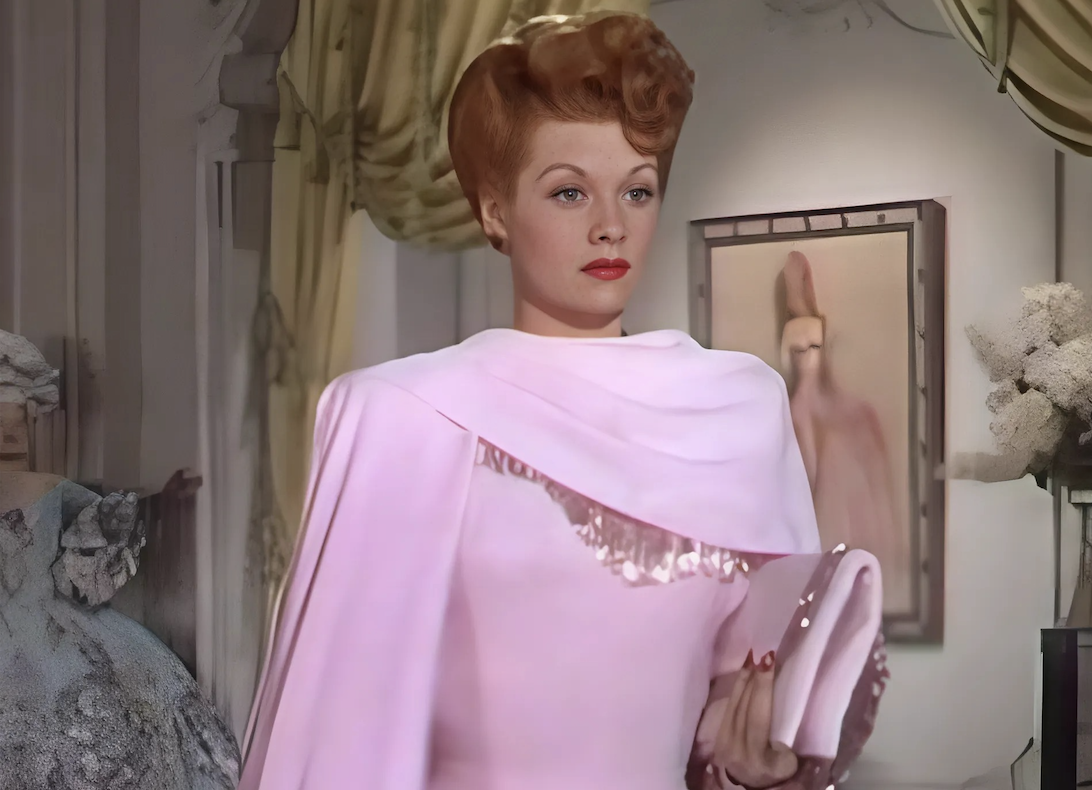
Before there was feminism on screen, there was Lucy.
In an era where women on television were expected to be quiet, supportive, and always smiling in the background, Lucille Ball stood in front of the camera, made the world laugh—and rewrote the rules. More than just the star of I Love Lucy, she was a trailblazer whose influence is still felt across entertainment today.
At a time when the role of women was rigidly defined, Lucille Ball didn’t just break the mold—she smashed it with a slapstick punchline and a perfectly timed eyebrow raise.
The First Pregnant Woman on Prime-Time TV
It’s hard to imagine now, but in the 1950s, pregnancy was considered too taboo to even mention on American television. When Lucille Ball became pregnant with her second child, network executives told her she couldn’t say the word “pregnant” on air. But Lucy didn’t back down.
Instead, she insisted that her real-life pregnancy be written into the show. The result was television history: I Love Lucy became the first show to depict a pregnant woman in a lead role—and to turn the experience into a major plot arc.
More than 44 million people tuned in to watch the birth episode of “Little Ricky” in January 1953. To this day, it remains one of the most-watched television broadcasts of all time.
Lucille Ball didn’t just carry the baby—she carried the culture forward.
She Fought for Desi Arnaz—And Won
Behind every great comedy was a battle. When CBS first approved I Love Lucy, the network wanted to cast a white American actor to play Lucy’s husband. They didn’t believe audiences would accept Desi Arnaz, a Cuban-American bandleader, as her on-screen spouse.
But Lucy wouldn’t do the show without him.
She fought tooth and nail to keep Desi as Ricky Ricardo. To prove they had chemistry that worked on stage as well as off, Lucille and Desi created a vaudeville act and toured the country, showing executives firsthand that America was already in love with their love story.
Lucille Ball’s insistence on an interracial marriage on TV—in the 1950s—was nothing short of revolutionary.
From Slapstick Queen to Studio Boss
Lucy wasn’t just a star—she was a boss.
When Desilu Productions was formed, Lucille and Desi became the first couple to own their own studio. They pioneered the multi-camera sitcom format, the use of a live studio audience, and filming on 35mm film—standards that shaped how sitcoms are made even today.
And when Lucille bought out Desi’s shares in Desilu in 1962, she became the first woman to run a major television studio in Hollywood history. Under her leadership, Desilu produced iconic series like Star Trek, Mission: Impossible, and The Untouchables.
“She wasn’t just a woman in power—she was the power,” said one Hollywood executive decades later.
A Legacy That Still Echoes
Lucille Ball’s legacy isn’t just about laughs—it’s about courage. About speaking up in rooms that tried to silence her. About demanding her place at the table—and then building the table herself.
She made space for every quirky, loud, messy, hilarious female character that came after her—from Mary Tyler Moore to Julia Louis-Dreyfus to Issa Rae.
And she did it all while making people laugh until they cried.
Why Lucille Ball Still Matters
In an age of streaming wars, social media, and evolving views of gender, Lucille Ball remains a timeless figure—not just for her comedy, but for what she represented: boldness, brilliance, and refusing to be anything less than herself.
She didn’t ask for permission.
She didn’t wait for approval.
She just was Lucy.
And television has never been the same.
“Before there was feminism on screen—there was Lucy.”
Share if she made you laugh. Share if she made you believe in yourself.
